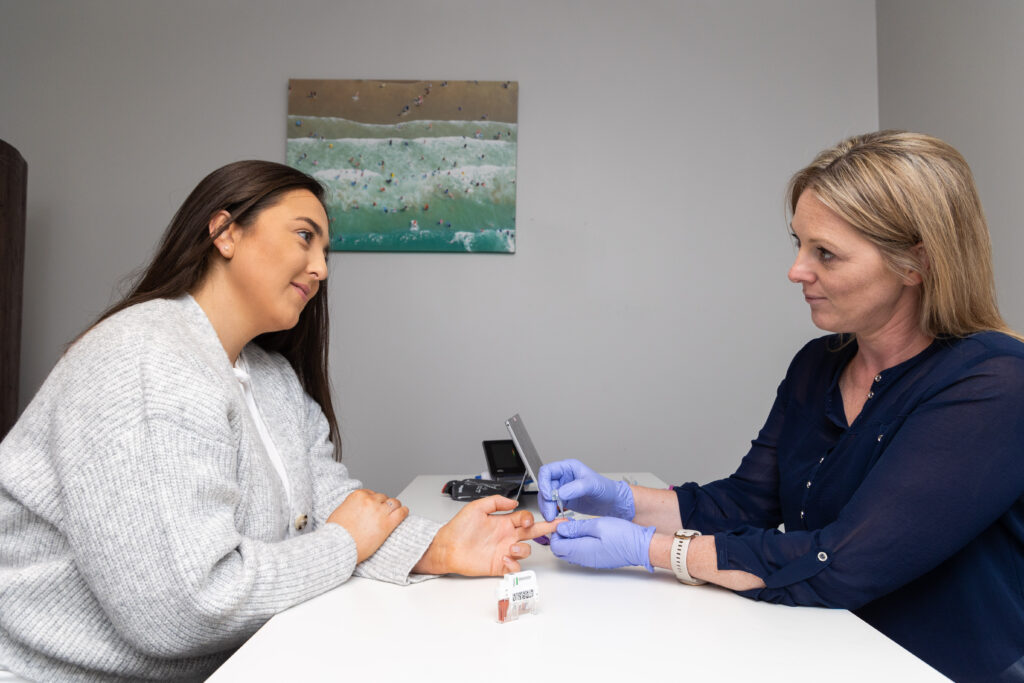In the pursuit of better health, we often focus on the physical aspects – diet, exercise, and sleep – while neglecting a vital component: our emotional wellbeing. You might already appreciate this conceptually but here’s an important question to ponder: how do you treat yourself when you make a mistake, or you don’t reach your goals? Do you treat yourself with kindness and understanding like you would a friend or do you beat yourself up for your so-called failings? If, like most people, your tendency is to berate yourself, it’s time to bring a little more self-compassion into your life. It’s good to be kind to yourselves and it can be your greatest ally in reaching your health goals.
“With self-compassion, we give ourselves the same kindness and care we’d give to a good friend.” Kristin Neff, one of the eminent researchers on self-compassion
Health 4 U specialise in helping you to achieve this self-compassion. While you may believe that Sinéad’s Individual Programmes are all about food, this is very often not the case for the majority of my clients. Supporting my clients to overcome boundaries, which are very often the mitigating factors with people’s health, enables you to start understanding & implementing true self-compassion, and then your health goals will fall into place so much easier.
Book a consultation now to learn strategies to help you to overcome these boundaries.

What is self-compassion?
At its core, self-compassion is the practice of treating yourself with the same kindness and understanding that you offer to others. It comprises three key components: self-kindness, common humanity, and mindfulness. It’s different from self-esteem (although this is also important for wellbeing). Instead of relying on self-judgment and comparisons, self-compassion is about self-acceptance and self-care.
The connection between self-compassion and your health
Research shows a profound connection between emotional wellbeing and physical health. High levels of stress, self-criticism, and negative self-talk can hinder your progress towards health goals. This is where self-compassion steps in. By reducing stress and improving mental health, it lays a strong foundation for positive health behaviours.
Silence your harshest critic – yourself
Imagine the inner critic as a relentless coach who constantly points out your flaws and mistakes. It’s time to silence that voice. Recognising self-criticism is the first step. Pay attention to those moments when you berate yourself for a slip-up. Then, challenge these thoughts with self-compassion. Ask yourself: “Would I speak to a friend this way?” Almost always, I suspect the answer will be no.
Start to learn self-kindness
Self-kindness is the heart of self-compassion. Start your day by acknowledging your achievements, no matter how small they might seem. If you already practise gratitude, it’s not that far away. Instead of reminding yourself of the good things in your life, you are reminding yourself of the good things in you. Treat yourself with the same warmth you’d offer a loved one. Practice self-care as an act of kindness to your body and mind – eat nourishing foods, get enough rest, and engage in activities that bring you joy.

You’re not in it alone – welcome to ‘common humanity’
You’re not alone in your health journey, whatever that is. Common humanity is the understanding that all humans face challenges and imperfections. Connect with others who share similar goals. Share your experiences, both the successes and the setbacks. It’s comforting to realise that your struggles are part of the human experience.
It’s worth remembering that people love to help, and we often don’t give them that opportunity to provide support. Think of reaching out as something they can feel good about, too.
Stay in the moment
I am a big fan of mindfulness for all sorts of reasons, and it also happens to be a powerful tool when it comes to self-compassion. Mindfulness brings you into the present moment, allowing you to make conscious choices about your health rather than dwell on what should or could have been, which inevitably ends with self-recriminations.
Practice mindfulness through meditation, deep breathing, or simply by being fully engaged in your daily activities. It will enhance your decision-making related to your wellbeing. If you’re new to mindfulness, it can be helpful to start with some guided meditation using smartphone apps like Calm or Headspace. The point of these guided meditations is not to get really good at doing it, but to make the time to do it daily if you can. It is a ten-minute oasis of calm, and it works best to find a point in your day that you can regularly commit to (even before bed) when you won’t be disturbed. Your mind is bound to wander off part-way through. This is normal so don’t throw in the towel if this happens!
Get started with self-compassion
Set realistic goals. Start small and build from there. Unrealistic expectations can lead to self-criticism.
Track your progress. Keep a journal to monitor your achievements and setbacks. Celebrate every step forward.
Keep a self-compassion diary. Create a journal where you record your self-compassionate thoughts and moments. Reflect on them regularly.
A little word on setbacks…
Setbacks are part of any journey, including your health journey. Instead of viewing them as failures, see them as opportunities for growth. When you slip up, acknowledge it without self-judgment. Remember that self-compassion allows you to learn from setbacks and move forward with resilience.
Self-compassion is not a luxury; it’s a fundamental pillar of good health. By treating yourself with the same kindness and understanding you offer to others, you create a positive environment for your physical and mental well-being. Begin your self-compassion journey today, and watch as it transforms your path towards your health goals.
Why Choose Health 4 U?
Quite simply the answer is time, listening & truly hearing what is happening to you. When you attend your GP or a consultant you will have 15- 20 mins appointments looking at the symptoms you present with that day, they don’t have the time to detail all that is going on for you. At Health 4 U, our in depth holistic assessments give us the full picture of what is going on in your body. We look at your current medical history, your past medical history right back to when you were born, your family history, your lifestyle, home life, work life and then we go through each body system in detail, we fact find, looking to find the root cause of imbalances, the reason why you are experiencing whichever symptom / difficultly your having, we don’t treat disease or condition perse, we support and guide you to optimal health to manage current health issues / prevent chronic disease.
Health 4 U
Sinéad has developed online courses which are generally shorter than her Individual Programmes, to give you a taster of how Nutritional Therapy can help you to overcome these boundaries & lead you to Self-Compassion & successful Health Goals!


